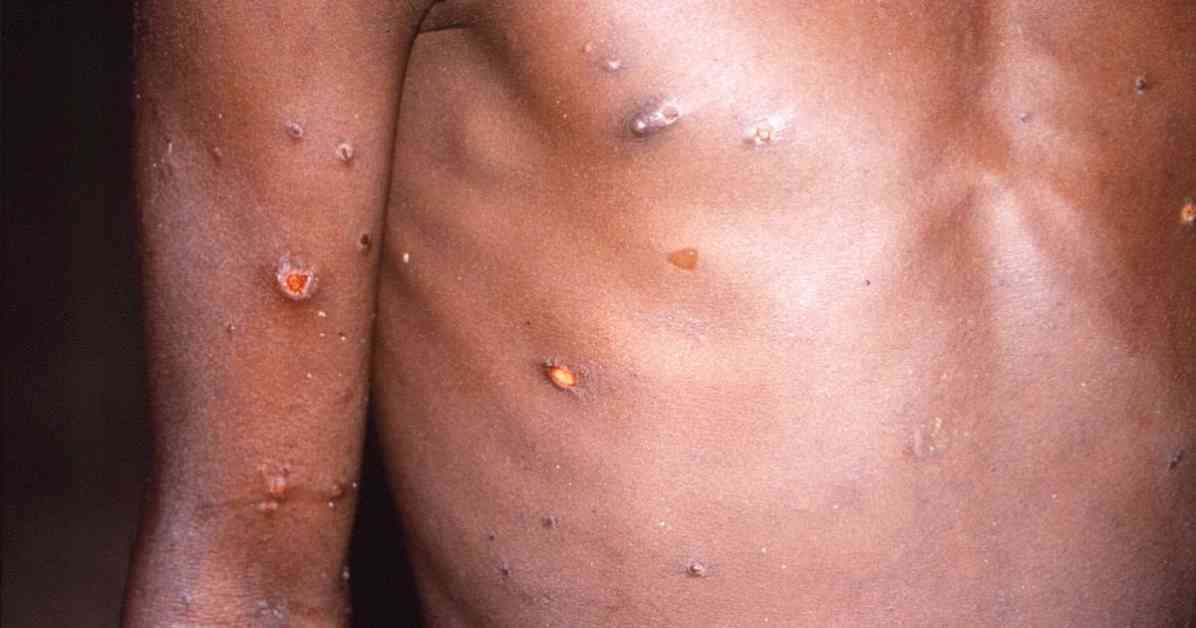A new global emergency has been declared by the World Health Organisation (WHO) – with both children and adults being affected. Outbreaks of mpox in Africa have now been classed as a global emergency. Cases have been confirmed in more than a dozen countries and a new form of the virus is spreading – but there are few vaccine doses available on the continent. “This is something that should concern us all,” said WHO director general Tedros Adhanom Ghebreyesus. “The potential for further spread beyond Africa and beyond is very worrying.” The decision comes after the Africa Centres for Disease Control and Prevention announced mpox outbreaks were a public health emergency earlier this week. It noted that there have been more than 500 deaths caused by the virus – as it urged the international community to help stop its spread. Mpox had been known as monkeypox until November 2022, when it was given a new term by the WHO following complaints over the previous name being ‘racist and stigmatising’. The Africa CDC previously said that mpox has been detected in 13 countries this year, and that more than 96 per cent of all cases and deaths are in Congo.
Global Impact of Mpox Outbreak:
The global impact of the mpox outbreak is significant, with cases spreading beyond Africa. Salim Abdool Karim, a South African infectious diseases expert who chairs the Africa CDC emergency group, stated, “We are now in a situation where (mpox) poses a risk to many more neighbors in and around central Africa.” The new version of mpox spreading from Congo appears to have a death rate of about three to four per cent. In 2022, WHO declared mpox to be a global emergency after it spread to more than 70 countries that had not previously reported mpox, mostly affecting gay and bisexual men – including in the UK. In that outbreak, fewer than one per cent of people died. An mpox vaccine was rolled out in the UK in 2022, but there is limited availability in Africa. Michael Marks, a professor of medicine at the London School of Hygiene and Tropical Medicine, emphasized the importance of declaring the latest mpox outbreaks in Africa an emergency to garner more support to contain them. “It’s a failure of the global community that things had to get this bad to release the resources needed,” he said.
Impact on Children and Vulnerable Populations:
Officials at the Africa CDC said nearly 70 per cent of cases in Congo are in children younger than 15, who also accounted for 85% of deaths. Jacques Alonda, an epidemiologist working in Congo with international charities, expressed concerns about the spread of mpox in camps for refugees in the country’s conflict-ridden east. He shared a heartbreaking story of a six-week-old baby who contracted mpox at just two weeks old due to hospital overcrowding. Save the Children highlighted the strain on Congo’s health system, which has been collapsing under the weight of malnutrition, measles, and cholera. The UN health agency identified mpox for the first time in four East African countries: Burundi, Kenya, Rwanda, and Uganda, all linked to the outbreak in Congo. Ivory Coast and South Africa have reported outbreaks of a different and less dangerous version of mpox, which spread worldwide in 2022. The situation is dire for vulnerable populations, particularly children, in these regions.
Challenges in Containing Mpox Outbreak:
Mpox presents unique challenges in containment due to its mode of transmission and variations in severity. Unlike previous outbreaks where lesions were mainly seen on the chest, hands, and feet, the new form causes milder symptoms and lesions on the genitals, making it harder to spot. This variation in symptoms means that individuals may be infected without realizing it, leading to further spread of the virus. Before the 2022 outbreak, mpox had been primarily seen in sporadic outbreaks in central and West Africa when people came into close contact with infected wild animals. Western countries managed to contain the spread of mpox in 2022 with vaccines and treatments, but the availability of these resources in Africa is limited. Scientists have reported the emergence of a new form of the deadlier version of mpox, which can have a mortality rate of up to 10 per cent, in a Congolese mining town. This new form is concerning as it may spread more easily, posing a greater risk to populations.
International Response and Support:
The international community must come together to provide support and resources to combat the mpox outbreak in Africa. The WHO’s declaration of a global emergency underscores the urgency of the situation and the need for coordinated efforts to contain the virus. The limited availability of vaccines and treatments in Africa highlights the disparities in healthcare access and the importance of equitable distribution of resources. Organizations like Save the Children are working tirelessly to provide care and support to affected populations, but more assistance is needed. Countries around the world must prioritize funding for research, development, and distribution of vaccines and treatments to ensure that all individuals have access to essential healthcare services. Collaboration between governments, NGOs, and healthcare providers is essential to effectively combat the mpox outbreak and prevent further spread of the virus.
Conclusion:
The global emergency declared by the World Health Organisation for the mpox outbreak in Africa highlights the urgent need for action to contain the virus and prevent its spread. Children and vulnerable populations are particularly at risk, and efforts must be made to ensure their protection and well-being. The international community must rally together to provide support, resources, and funding to combat the outbreak effectively. With coordinated efforts and solidarity, we can overcome the challenges posed by mpox and safeguard the health and safety of individuals worldwide. Let us stand together in the fight against this global health crisis and work towards a brighter and healthier future for all.

